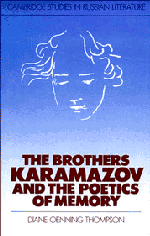Book contents
- Frontmatter
- Contents
- Preface
- Note on the text
- 1 Memory and poetics
- 2 The fictional narrator
- 3 Memory and the system of ascending plots
- 4 The memories of the characters: forms of affirmative memory
- 5 The memories of the characters: forms of negative memory
- 6 Forgetting
- 7 Foretelling
- 8 The Christocentric poetic memory system
- 9 Afterword
- Notes
- Bibliography
- Index
- Titles in the series
6 - Forgetting
Published online by Cambridge University Press: 05 November 2011
- Frontmatter
- Contents
- Preface
- Note on the text
- 1 Memory and poetics
- 2 The fictional narrator
- 3 Memory and the system of ascending plots
- 4 The memories of the characters: forms of affirmative memory
- 5 The memories of the characters: forms of negative memory
- 6 Forgetting
- 7 Foretelling
- 8 The Christocentric poetic memory system
- 9 Afterword
- Notes
- Bibliography
- Index
- Titles in the series
Summary
Memory [is] Exemption from Oblivion.
Dr Johnson's DictionaryNot everything in heaven have I hated,
Not everything on earth have I disdained.
The Angel, H. S. PushkinRemembering implies forgetting, for they are both complementary aspects of the same process of selection. Both are related to the past, only in radically opposite ways. Remembering is essentially a reconstructive activity, whereas forgetting is a destructive one which obliterates the traces of past experience either temporarily or permanently. Attached to memory are notions of fullness and presence. Thoughts, feelings and images of persons and events, along with their contexts, coexist in that individual and collective storehouse we call memory. Amnesia, though, denotes the contrary notions of occlusion, absence or emptiness. Amnesia is a condition, whereas forgetting is a mental activity whose end result is depletion or disappearance of remembrances. With the loss of remembrances comes the loss of whole contexts, personal, social and cultural. Certain elements either exist but are temporarily obscured, or they have vanished; whole regions of the storehouse are bare, uninhabited. What is obscured may have to be revealed, and what has vanished may have to be recovered, before a spiritually whole human being, or culture, can emerge. What has been destroyed may be beyond recovery.
- Type
- Chapter
- Information
- The Brothers Karamazov and the Poetics of Memory , pp. 158 - 211Publisher: Cambridge University PressPrint publication year: 1991



